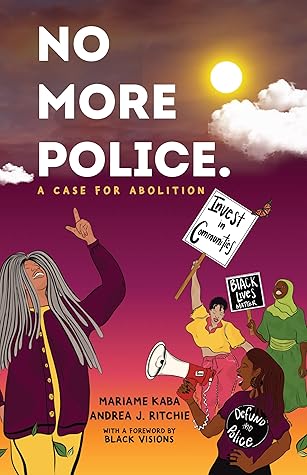More on this book
Kindle Notes & Highlights
Groups across the country are also using participatory budgeting to gain more direct control over where school, local, and federal funds are spent, and drive investments to meeting material needs and community-based safety strategies.
The results focused on five priority investment areas: Housing and Physical Spaces, Mental Health, Youth & Children, Economic Development, and Crisis & Wellness. These will serve as the “buckets” for the participatory budgeting process. The report also lays out recommendations for how the process should unfold, including compensation to community members for participation.
We cannot effectively teach people not to harm others by harming them. Instead, punishment fuels and legitimizes systems that make the harm possible in the first place while leaving survivors without resources. The practice of punishment itself is harmful and destructive.
Accountability, on the other hand, means taking responsibility for harms, understanding their impact(s), and working to repair them. It is not a singular action or destination; it is an internal process through which we decide to be aligned with a shared set of values, and to be responsible to ourselves and those around us for our choices and their impacts. Accountability is not something that is imposed like a sentence, nor is it an inherent capacity some people have and others don’t. Instead, it is an active process that people choose to engage in, voluntarily and on an ongoing basis. As a
...more
People can only choose to take accountability. Communities can create and hold space for people to do so through transformative justice processes. Often, that does not feel satisfying for people. But it’s worth remembering that punishment rarely satisfies, either, because it cannot ultimately heal or repair harm. The current criminal punishment system actually discourages people from accepting ...
This highlight has been truncated due to consecutive passage length restrictions.
While the degree of harm in our communities requires us to act with urgency, it cannot push us to acting hastily, lest we simply re-create what already exists in new forms. We know that what we currently have in place is actively causing harm and must be dismantled. What we build in its place will take time to evolve in each community.
Transformative justice also requires that we develop a balance of relationship, skills, and structure. If we don’t have the trusting relationships, then we need skilled people to help manage conflicts. If we don’t have the skills, then we really need a lot of structure. The more we build our relationships, the less structure we’ll need.58
Of course, communities will need dedicated time to build a way forward. In the meantime, we must address the more immediate needs of survivors and people vulnerable to violence. That means building our capacity for mutual aid and for engaging in restorative and transformative justice as we work towards our broader visions. Beth Richie describes abolition feminism in practice as interventions that (1) take the problem of gender violence very seriously and provide support for survivors; (2) use transformative justice approaches and mutual aid to do that; (3) analyze the root causes of violence
...more
Black feminism requires us to uproot the stories that define, police, erase, suppress, cage, control, and obliterate us in service of existing systems of power.
As organizers, our work is to do at least three things: (1) help people understand the current reality; (2) collectively imagine a future vision of what can be; and (3) diligently labor toward that future. These battles are not only waged in social and political arenas; they are cultural, emotional, and spiritual.
Black feminism offers visions of collective practices based in an ethics of care and personal accountability. These practices are rooted in what we have always done: nurtured and cared for ourselves, each other, and our communities, in the interests of survival and liberation. We want to build a future based on non-coercive and consensual care, not punishment. For us, care isn’t a feeling; it’s an action. Care is not a one-way street; it is an ethic of mutual responsibility. Care is what drives our efforts to fight the violence of the state, secure the resources we need, and build the world we
...more


